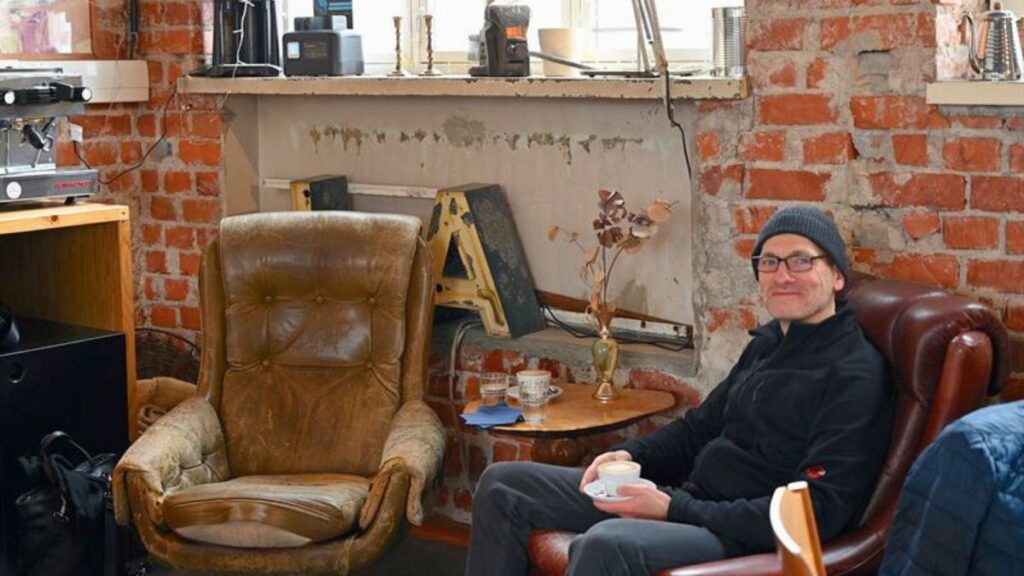Coffee-loving travellers might have destinations like Vienna and Melbourne on their must-visit list – but what about Finland?
The Nordic nation is home to some of the most prolific caffeine drinkers in the world, and now Helsinki is positioning itself as a new brew capital.
An increasingly diverse coffee culture has taken root in the Finnish capital city over the last decade, with small roasteries, transparent sourcing and modish cafés.
And this weekend, the Helsinki Coffee Festival, the leading event of its kind in the Nordics, celebrates its 10th anniversary.
Finland is a country of coffee fiends
For Finns, coffee is more than just a warming and energising drink – it’s a social glue and a growing subculture.
Finland has long held the global record for coffee consumption, with Finns drinking an average of around four cups a day.
For decades, this devotion centred around light-roasted filter coffee, served black and often brewed by the pot.
But in recent years, roasteries and cafés have been growing more experimental.
Where are the best places to drink coffee in Helsinki?
Visitors should start their coffee education at the city’s classic coffee houses.
The oldest café, Ekberg (founded in 1852), Fazer Café, Strindberg, and Café Engel are still going strong, beloved for their unique history and atmosphere.
Café Engel turned 36 in April and has become a Helsinki institution.
“We are happy to notice that Engel attracts people of all ages – sometimes even four generations at once,” says the owner, Harri Sjöberg.
“Our all-time favourites are the all-day breakfasts enjoyed with coffee from the local Kaffa Roastery.”
Green and clean: Chasing the perfect brew in Helsinki
In recent years, progressive roasteries and cafés have been popping up around the country, where travellers can indulge in eco-friendly brews.
Since opening in 2007, Svante Hampf, founder of Helsinki-based speciality roaster Kaffa Roastery, has seen the city’s coffee scene evolve.
“The price tag no longer defines the value of coffee – consumers value transparency and sustainability,” he says.
“Fortunately, quality and sustainability often go hand in hand. When coffee is of high quality, its production chain is often built on a sustainable foundation as well.”
Kaffa Roastery operates its flagship café and micro roastery in the Punavuori district – with glass walls for literal and metaphorical transparency.
Over 50 independent roasteries now operate across Finland, many of them in the capital region.
Cafés like Päiväkahvibaari, La Torrefazione and Rams Roasters have become go-to places for Helsinkians and visitors alike.
Good Life Coffee, which opened its roastery in 2014 and was named the best roaster in the Nordics at the Nordic Coffee Fest in 2024, is another name at the forefront of the movement.
It no longer operates its own café but supplies coffee to some of Helsinki’s favourite spots, such as the hip Sävy in Kallio, with its exposed brick walls, vintage furniture and chandeliers.
Co-founder Lauri Pipinen says the roastery’s goal is to offer an alternative to mainstream coffee.
“Our aim is to highlight coffee’s origin more clearly – where it comes from and who has grown it. Coffee is rooted deeply in our culture, but still, many people know little about it,” he says, noting that it’s nice to operate in a country that appreciates its coffee – and is getting more and more curious about it.
Visit the Nordic’s biggest coffee festival
The city’s burgeoning coffee culture takes centre stage at the Helsinki Coffee Festival, celebrating its 10th anniversary this year.
Held at Kaapelitehdas from 25-27 April 2025, the festival is the largest of its kind in Northern Europe, bringing together coffee lovers, roasters and baristas.
Visitors can taste coffee from both small and larger roasters, test coffee equipment, learn different ways to brew coffee at home and discover new flavours.
“The pandemic years had a clear impact on coffee culture – people began investing more in making coffee at home and experimenting with new equipment and brewing methods,” says the festival’s co-founder, Maija Kestilä.
“At the same time, ecological and ethical considerations have become increasingly important, with more and more people wanting to know the origin of their coffee and opting for responsibly produced beans.”
Read the full article here

